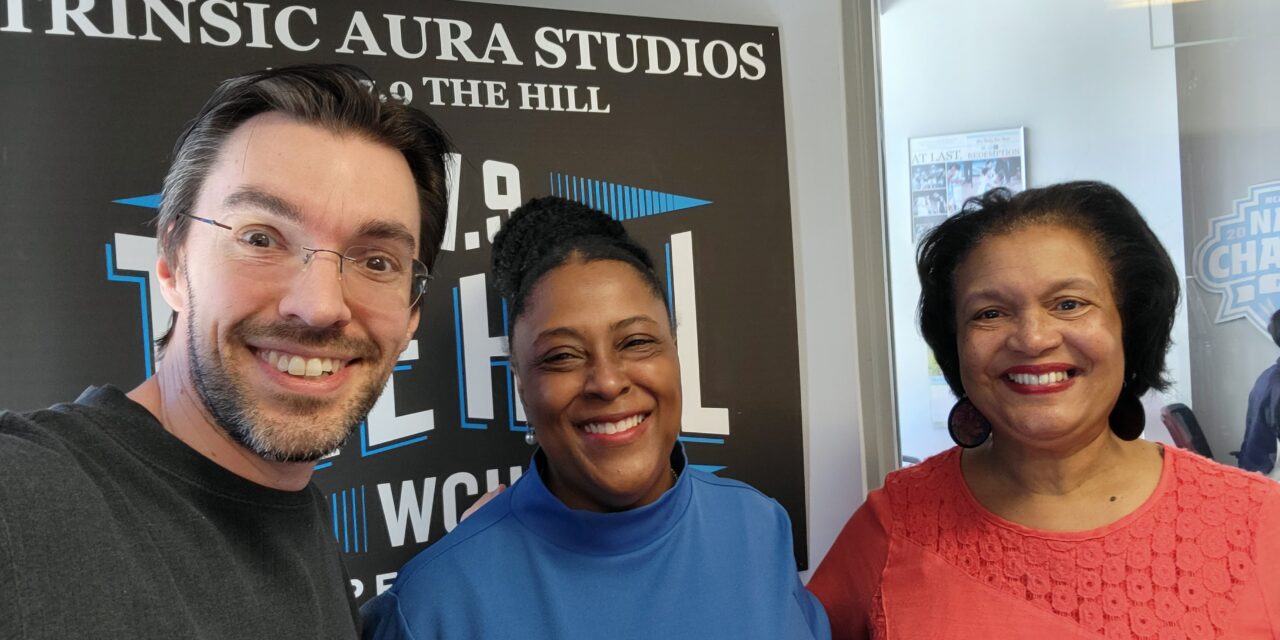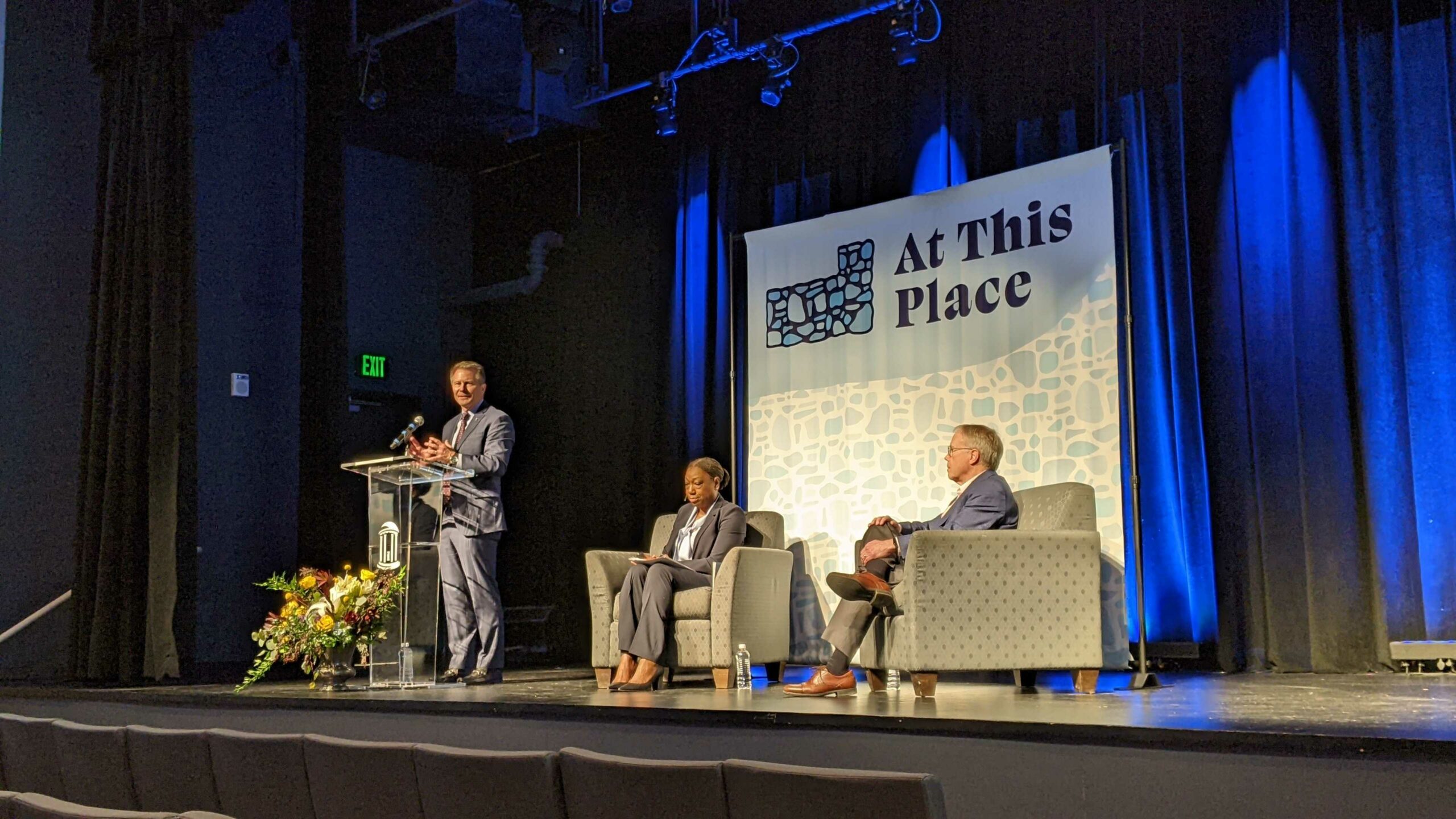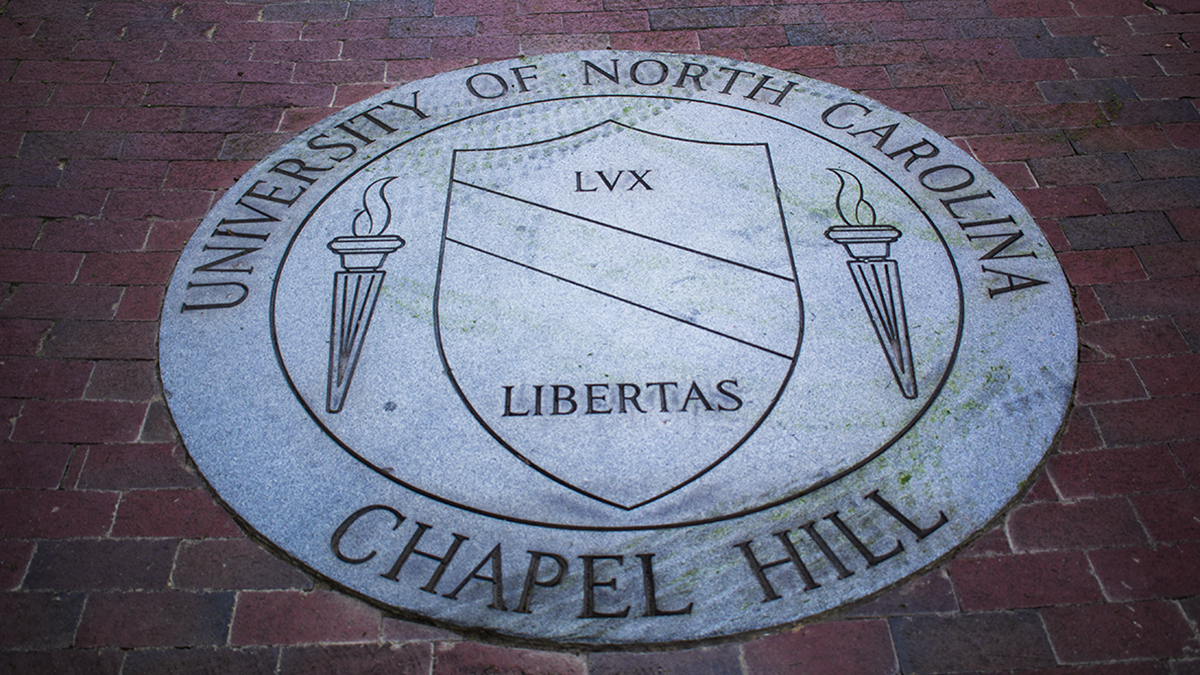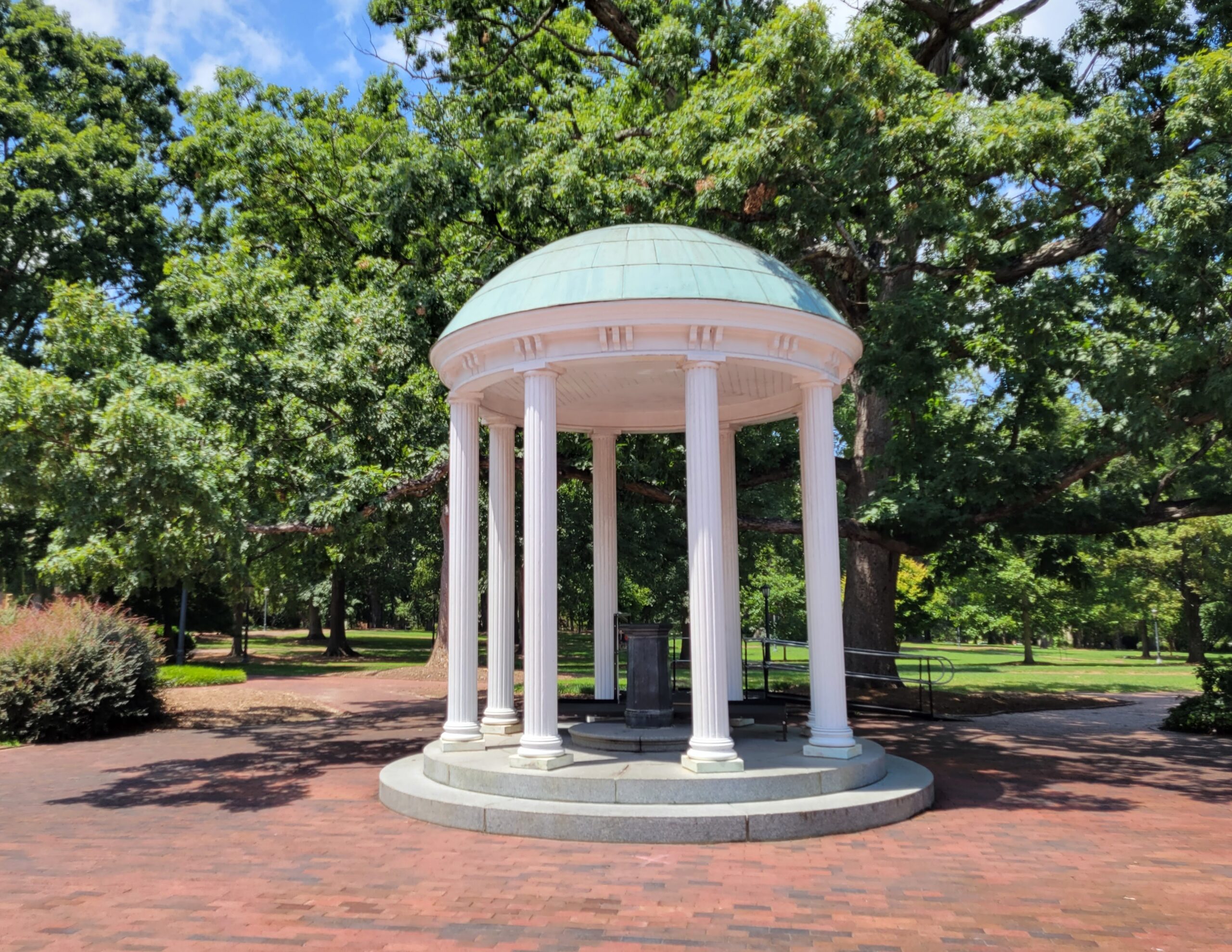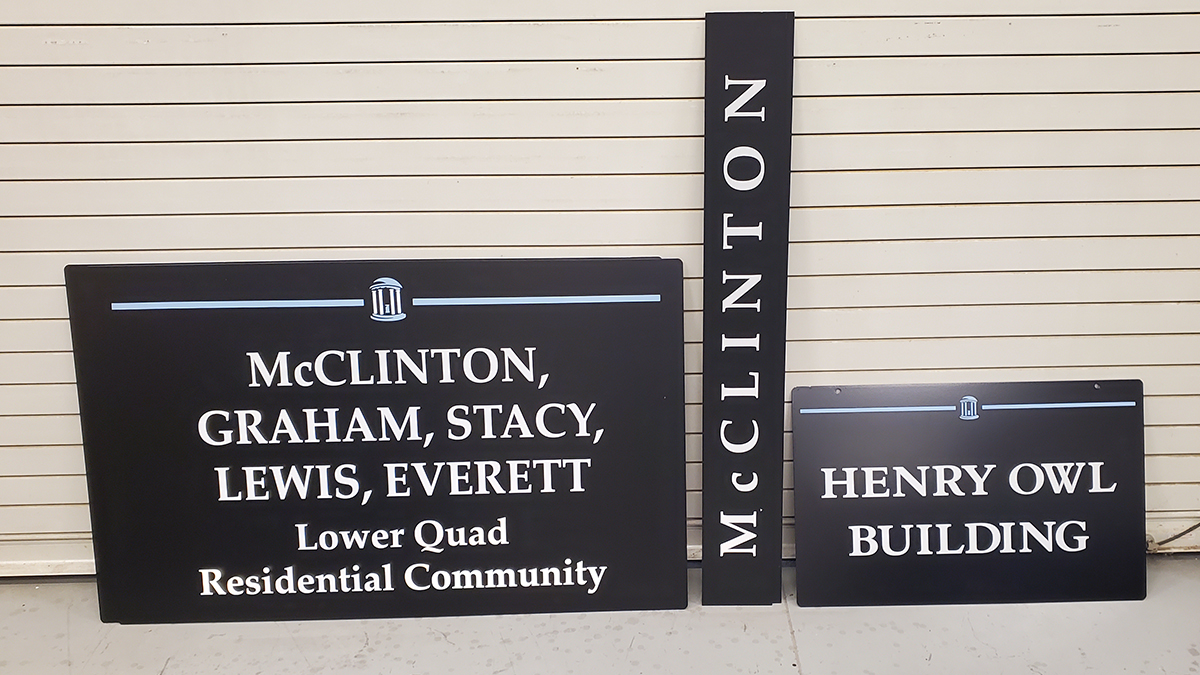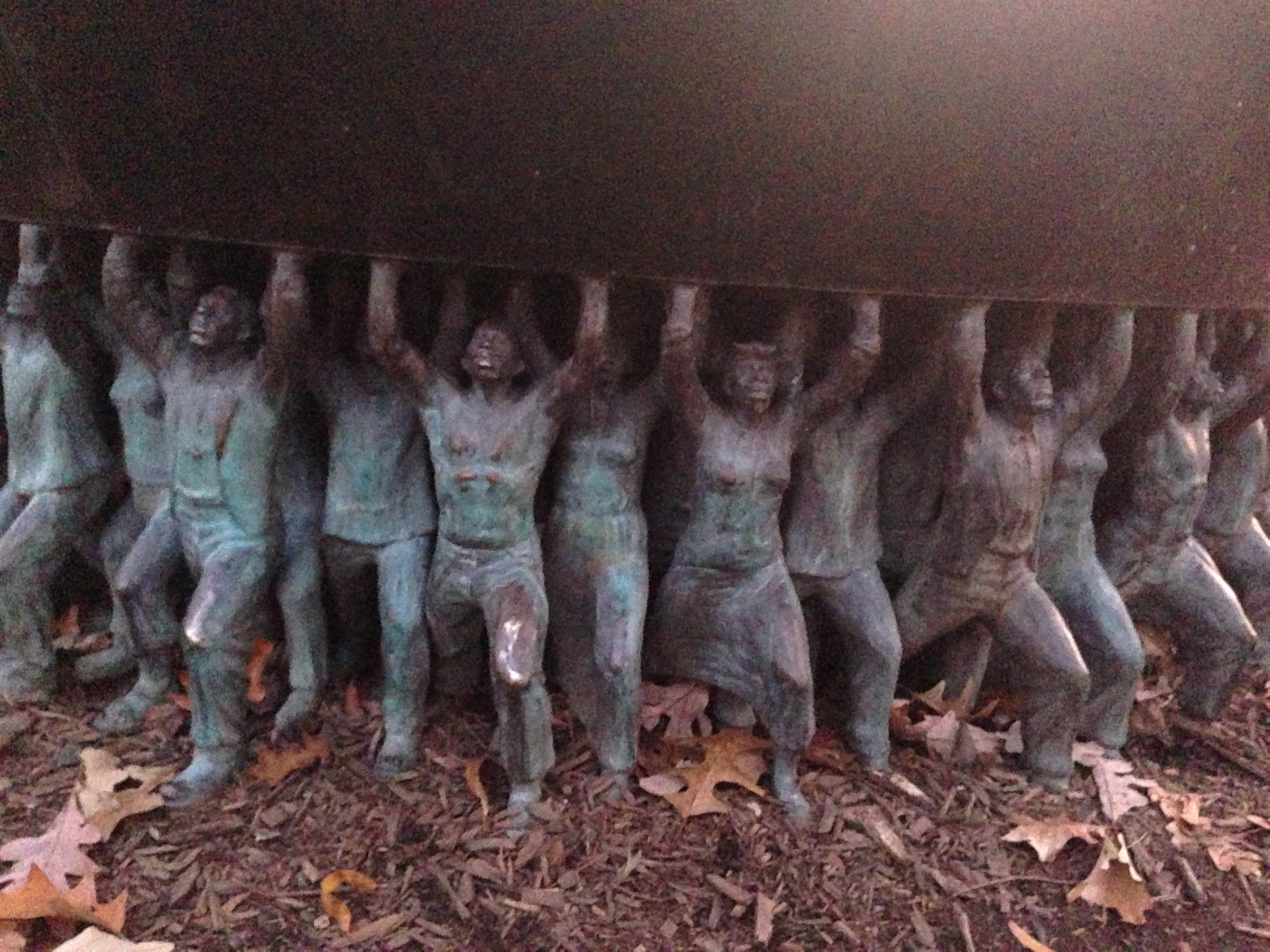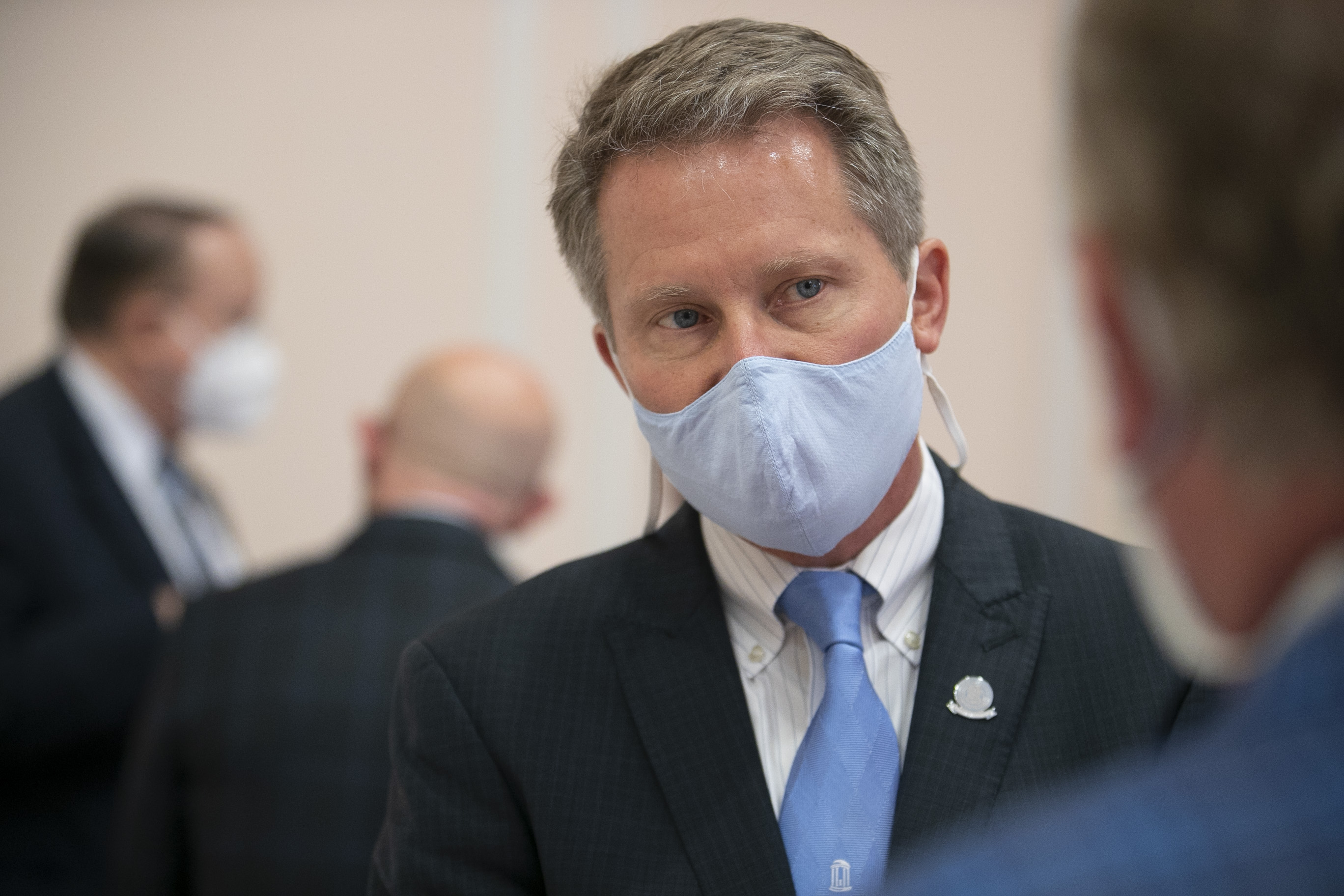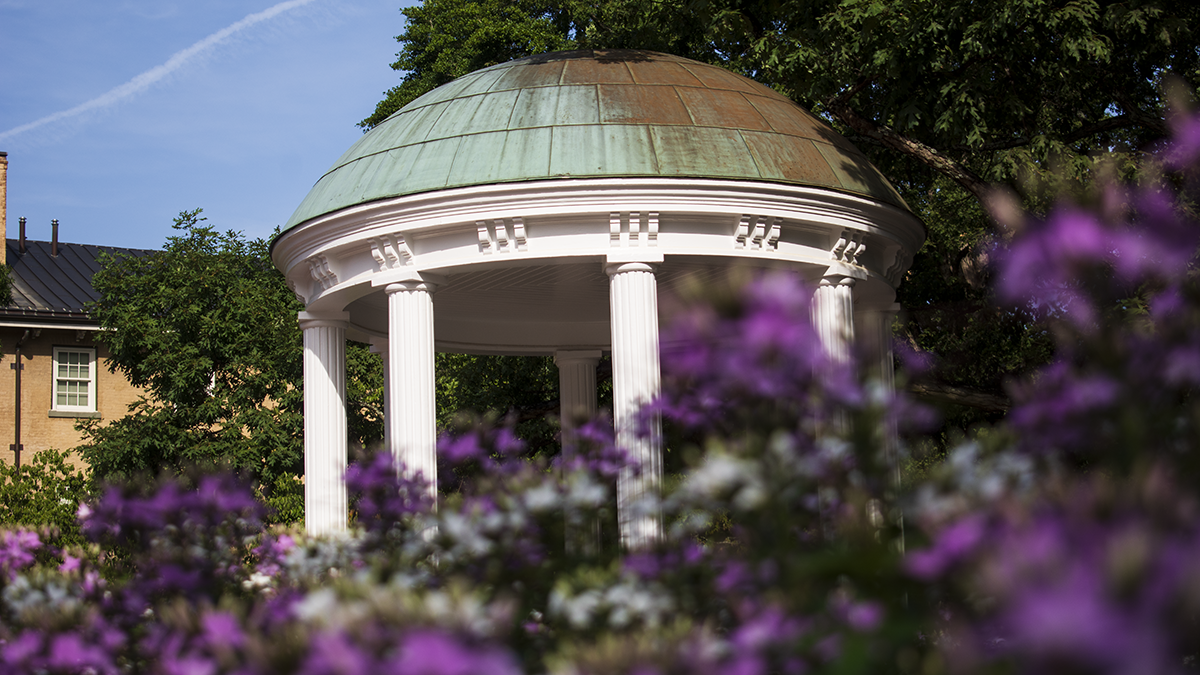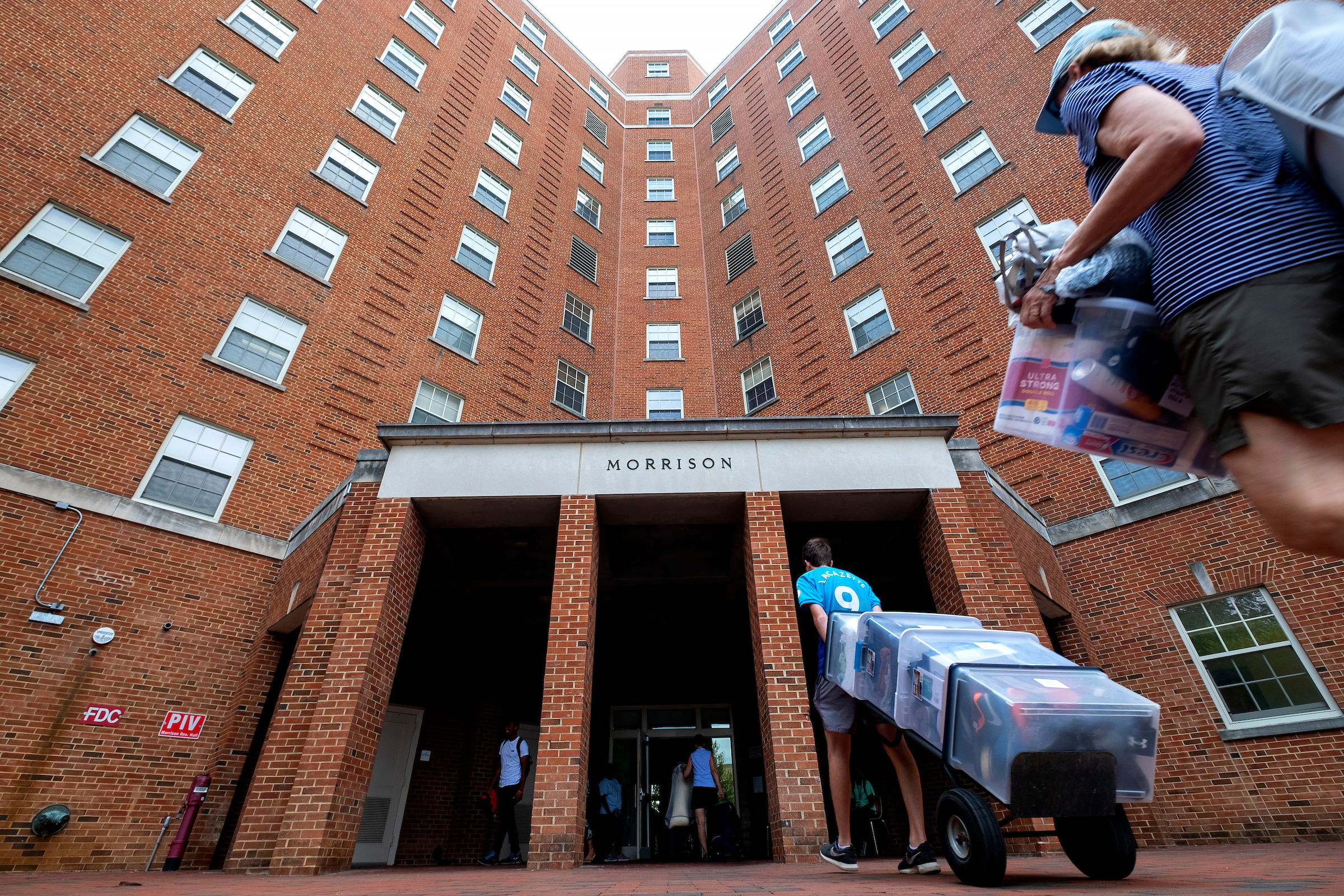This week, UNC is hosting a conference called “Universities Studying Slavery,” focusing on how colleges can examine and teach the troubling side of American history – and how they can wrestle with their own role in that history.
The conference is being hosted by UNC’s Commission on History, Race, and a Way Forward. That commission was formed in 2019, in the wake of recent debates around the Silent Sam statue and the names of white supremacists on campus buildings, and growing concerns about whether UNC is a welcoming campus for people of color. Its mission was “to explore, engage and teach the University’s history with race,” and to make recommendations for the future.
But while UNC was facing those questions in its own unique ways, members of the commission quickly understood that other universities were wrestling with the same questions – particularly in the South, where many of our most prestigious institutions were built on the backs of enslaved labor.
How should a university properly acknowledge its troubled racial history? What can it do today, to be better, more welcoming, more inclusive – and more honest – going forward?
UNC is hosting “Universities Studying Slavery” from Wednesday, March 15, through Saturday, March 18, with guest speakers from New York, Texas, Illinois, Michigan, Virginia, South Carolina, Florida, and more.
Click here to see the full program for the conference.
Delores Bailey and Danita Mason-Hogans both serve on the Commission on History, Race, and a Way Forward. They spoke this week with 97.9 The Hill’s Aaron Keck.
Danita Mason-Hogans: The conference is an extension of the Commission on History, Race and a Way Forward. Delores and I, along with the other planning committee members, have been working really hard to look at race, (to) examine, in particular, local generational descendants from this place…and (to) really look at Native and Black people’s contributions to the University, and think of the narrative differently than we usually do – in that we are not a side conversation, or a side story. Black and Native people are foundational to UNC. And by engaging with other universities, what we hope is for not only us but other universities to examine their relationship with their local communities and how enslavement has played a part in building and sustaining the university. And what has the relationship been like with the local descendants of these universities?
Aaron Keck: I like the fact that you talk about how we center this conversation. It’s the thing that I also love about the 1619 Project: asking, “how do we tell the story of American history, what if we started the story here, what would that tell us about our history?”
Mason-Hogans: Yes. What I appreciate about the 1619 Project, and efforts like these, is that it does not treat history as (an aside). You know, had it not been for local generational Black people, UNC would not be here. Brown would not be here. Harvard would not be here. And it is very important to underscore that these lands that we enjoy, that have produced so much innovation in science and technology and theory and thought, are in fact stolen native lands. Not to acknowledge that is to present an incomplete picture of the origins of the universities. And to treat it as an aside, as opposed to foundational – I think that really does a disservice to academic and historical pursuit as well.
Delores Bailey: (We’re also) reaching towards the graveyards, the cemeteries that are around the University – specifically the Barbee Cemetery, that’s located on UNC’s campus (near) the DuBose Center. A part of this is going into the cemeteries and understanding the university’s ownership of that, and then what to do (with) the enslaved family members. There’s been a deep, deep dive into that, (and) I think this conference will allow us to have some discussion around those.
Keck: Who is the target audience for the conference? Who are you hoping will get the most out of it?
Mason-Hogans: Number one, we’re centering local descendant communities. We’ve gone out of our way to make sure local folks know that they are not only welcome, but encouraged to attend, so that we can all learn more about this history. And I also think our target audience are other universities who are struggling with how to reckon with this history. And that’s really important, to engage these communities and conversations in really meaningful and mindful and deliberate ways, which we don’t often know how to do. How do we have these conversations, and center systems as opposed to actions? I think one of the strengths of the conference is (that) we haven’t figured it out either. What we do have is a deliberate attempt to figure out how to figure it out. And the only way to do that is to center local descendant voices, which we’ve been very intentional about doing.
Bailey: And I would add that (many local residents) are retirees from the University, some of them have worked around the University, grew up in Chapel Hill, and need to know about this topic and give their voice. Danita and I have been intentional about working with the community and making sure the community – and specifically the African American community and the Native American community – is present at this.
Keck: As members of the Commission on History, Race and a Way Forward, you’ve been very close to this conversation for a while. What have you learned? What’s a good way and what’s a less good way to reckon with that history?
Mason-Hogans: I think what I’ve learned is (that) the first step to any type of relationship, whether it’s interpersonal relationships or relationships between institutions and individuals, is the acknowledgement. I think that’s the first step. And oftentimes with the issues that are really polarizing, like race, it’s very easy to kind of avoid the conversation – and get to the dinner before we’ve had the appetizer. What we’ve tried to do, what we are still trying to do, is find out a way to set the table and set these conversations in stone. How do we (have) conversations that are productive, and historically active, and reflective about the relationship? Because anytime you have these conversations, for me, reconciliation has to be the end goal. And what we often don’t think about is that in order to have reconciliation, we have to have justice – and in order to have justice, we have to have these necessary conversations, because justice is predicated on truth.
So for me, this is an entryway of being vulnerable to other universities and saying, “we have not completely figured this out, but we’re committed to finding ways to engage in these conversations.” And I think other universities will be responsive to this, because I don’t know of anybody in the country who has this figured out. So if we can contribute to the ways in which we engage each other, I think we will have accomplished a lot.
Bailey: Danita and I have been on this commission for three years, and what I have seen is sometimes enlightening, sometimes very discouraging. The conversations have to happen, we must be open about it – but sometimes it’s difficult for the University to admit that that’s where they are. I’m not sure what will happen after this commission is done, but the conversations absolutely need to continue. And they must remember that there is a community outside of the walls of UNC, and it’s a community that cares about the University. That’s not happening.
The three years I’ve been on this commission, all of the people (on) the commission absolutely got it. But I’m concerned about the larger University community. It does not exist in solitude. It is not a silo. There are some people out there on Graham Street, on McMaster Street, that help build this university. And except for conversations like this, it feels like they’re completely ignored. So the importance of this commission, and the importance of this conference, is (to remind) the University of those loving arms that wrap around the University, that come from outside the university walls.
Chapelboro.com does not charge subscription fees, and you can directly support our efforts in local journalism here. Want more of what you see on Chapelboro? Let us bring free local news and community information to you by signing up for our biweekly newsletter.

